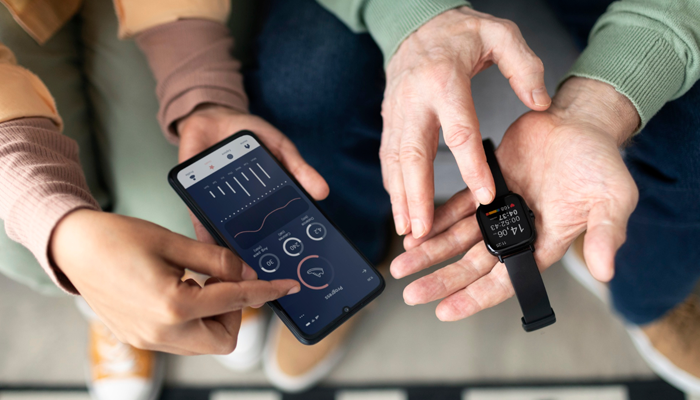
Posted On June 3, 2025
How UAE Regulations Impact Healthcare Software Development
As healthcare continues to go digital, software developers face growing challenges in staying compliant with local regulations—especially in regions with stringent data and patient privacy laws like the United Arab Emirates. In this blog, we’ll explore how UAE regulations shape healthcare software development and what businesses need to keep in mind when building compliant healthcare solutions.
Understanding the Regulatory Landscape for Healthcare Tech in the UAE
The UAE has made significant progress in advancing its healthcare sector through digital transformation. However, this shift comes with strict regulatory oversight. Entities such as the Ministry of Health and Prevention (MOHAP), the Dubai Health Authority (DHA), and the Department of Health - Abu Dhabi (DOH) oversee healthcare services and regulate the technologies supporting them.
Developers working in this space must understand that healthcare software—whether it's a patient portal, EMR system, or telemedicine app—falls under a set of evolving legal frameworks that prioritise patient safety, data confidentiality, and system integrity.
Why Compliance Matters in UAE Healthcare Software Projects
Compliance isn’t just about avoiding penalties—it’s about gaining trust from healthcare providers and patients. The UAE has implemented policies such as the UAE Federal Decree-Law No. 45 of 2021 on the Protection of Personal Data (PDPL), which outlines how personal health data should be processed, stored, and shared.
Failure to comply with these laws can result in fines, legal complications, or a complete shutdown of your service. More importantly, non-compliance risks compromising sensitive patient data, which can erode public trust and damage your brand’s credibility in the healthcare industry.
Key UAE Laws That Shape Healthcare Software Development
Several key regulations play a vital role in healthcare software development in the UAE:
-
PDPL (Personal Data Protection Law) – Establishes rules for data processing and individual consent.
-
DHA Health Data Law – Defines how health data must be hosted and accessed within the Dubai jurisdiction.
-
Health Information Exchange (HIE) Policies – Guide the sharing of patient information across healthcare providers securely.
-
Telehealth Regulations – Outline the standards and limitations of providing healthcare services via digital platforms.
Developers must design software that can align with these laws from the ground up, including features such as secure login, patient consent tracking, and data encryption.
Data Privacy and Security Standards You Need to Follow
Protecting patient information is at the heart of all regulatory requirements. Your software must comply with high data security standards—ensuring health data is stored within the UAE, access is role-based, and all communication is encrypted.
Additionally, it's critical to build systems that can provide audit trails, allow data retrieval upon request, and include automatic logout mechanisms to prevent unauthorised access. These are not just technical features—they’re regulatory necessities in the UAE.
How UAE Regulations Influence Software Design and Features
UAE healthcare laws don’t just affect back-end security—they directly influence the software's user experience and functionality. For example, patient consent forms must be integrated into workflows, data-sharing permissions need to be customisable, and language support (including Arabic) may be required.
Moreover, user access must be managed carefully—ensuring that healthcare professionals, administrators, and patients only see what they're authorised to. These design considerations go hand in hand with regulatory expectations, making them an essential part of every development roadmap.
Challenges Developers Face Under UAE Healthcare Guidelines
Developing healthcare software in the UAE requires more than just coding expertise. Developers must align their solutions with various laws and regulations such as the UAE Personal Data Protection Law (PDPL), Dubai Health Authority (DHA) standards, and Department of Health (DOH) guidelines.
This can create challenges such as:
-
Navigating complex compliance frameworks: Multiple authorities may have overlapping requirements.
-
Meeting strict data protection protocols: Especially when handling sensitive patient information.
-
Integration with approved systems: Developers must often ensure compatibility with existing government or hospital systems.
-
Delays in approvals and certifications: Regulatory reviews can slow down the development timeline.
The Role of Health Authorities in Approving Medical Software
Before launching any healthcare software in the UAE, it must go through an approval process led by health authorities such as:
-
Dubai Health Authority (DHA)
-
Ministry of Health and Prevention (MOHAP)
-
Department of Health – Abu Dhabi (DOH)
These bodies assess whether the software meets security, accuracy, and functionality standards. They ensure the application doesn’t compromise patient safety or data integrity. Without their approval, it’s not legal to deploy the software in hospitals or clinics. This means developers must stay up to date with the latest guidelines and maintain open communication with these agencies throughout the development lifecycle.
Steps to Ensure Your Healthcare App Meets UAE Standards
To develop healthcare software that complies with UAE regulations, consider these essential steps:
-
Conduct a compliance audit before development begins.
-
Work with legal and healthcare consultants familiar with UAE regulations.
-
Implement robust data encryption and secure login methods.
-
Document every process for easier review by health authorities.
-
Test thoroughly for security and usability in real-world conditions.
By taking these steps early in the development process, teams can avoid costly revisions and delays later on.
Avoiding Common Mistakes in Regulated Software Development
Mistakes in healthcare software development can be costly, especially when dealing with strict UAE regulations. Here are some frequent missteps to avoid:
-
Ignoring updates to regulations: Laws and guidelines can change, so always stay informed.
-
Skipping formal risk assessments: Security risks must be identified and mitigated from the beginning.
-
Underestimating documentation needs: Proper records are essential for gaining approval.
-
Focusing only on technical aspects: Regulatory and clinical requirements are just as important.
Avoiding these common mistakes not only saves time but also increases the chance of your software passing approval on the first attempt.
How Regulatory Compliance Builds Trust with UAE Healthcare Providers
Compliant software is more than just legally sound—it builds trust. Hospitals, clinics, and healthcare professionals in the UAE are more likely to adopt systems that clearly align with national standards. It signals that the software:
-
Protects patient data responsibly
-
Performs reliably in clinical environments
-
Has been approved by local health authorities
This trust plays a crucial role in long-term partnerships and software adoption across healthcare networks.
Conclusion
The UAE’s regulatory environment around healthcare software is clear in its intent: protect patient data and ensure reliable, secure medical services. For software developers and healthcare businesses, this means building solutions that are not only functional but fully compliant from day one.
Understanding these regulations—and embedding them into your development process—can help you gain the trust of both regulators and users.
Looking to develop healthcare software that meets UAE compliance standards? Learn how smartdatainc.ae can support your journey with secure, scalable, and regulation-ready solutions.





